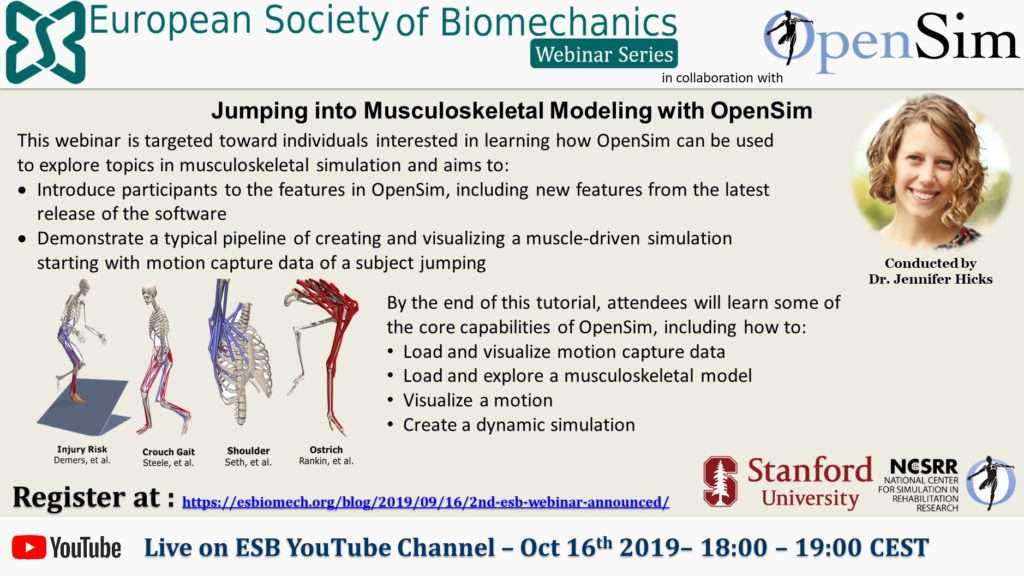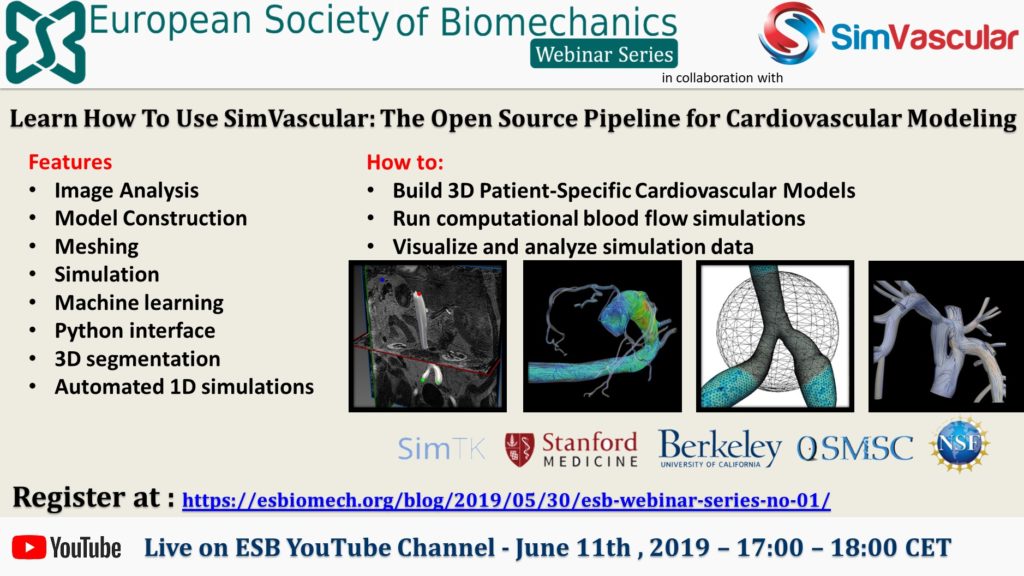https://www.uu.se/en/about-uu/join-us/details/?positionId=272718
Uppsala University is a comprehensive research-intensive university with a strong international standing. Our mission is to pursue top-quality research and education and to interact constructively with society. Our most important assets are all the individuals whose curiosity and dedication make Uppsala University one of Sweden’s most exciting workplaces. Uppsala University has 44.000 students, 7.100 employees and a turnover of SEK 7 billion.
The Department of Engineering Sciences is one of the largest at Uppsala University and conducts research within a number of different technical subjects. The department has approximately 360 employees and has its activities at the Ångström Laboratory and Campus Gotland.
The Marie Curie-PhD position is at the Division of Applied Materials Science, the Ångström Laboratory.
We are pleased to invite applications for a Marie Curie-PhD position in the new four-year EU-funded Marie Sklodowska-Curie ITN programme “Training innovative future leaders in research and development of materials and implants for the spine” (NU-SPINE, nu-spine.eu, project ID 812 765). This network is led by Prof. Cecilia Persson at Uppsala University and consists of three European universities (Uppsala University, ETH Zürich and University of Leeds) as well as industrial (IHI Ionbond AG, CeramTec GmbH, Key Engineering Solutions, SINTX Technologies and OssDsign AB) and clinical (Leeds Teaching Hospitals NHS Trust) collaborators.
Project description: NU-SPINE aims to deliver novel material compositions with a higher degree of biocompatibility as well as novel implant designs adapted to the local loading situation. Important deliverables for the network are also innovative methods for more accurate evaluation of the demanding tribological and corrosive conditions surrounding the implants. NU-SPINE will train talented researchers with the scientific and entrepreneurial mind required of the next generation of leaders in academia and industry connected to these medical devices. As a Marie Curie-PhD student, you will benefit from a tailored, multidisciplinary, scientific training programme, and be exposed to different environments via planned placements, and contribute to and organise workshops.
This Marie Curie-PhD project will focus on the development of validated numerical models for optimization of screw design and bone augmentation as a function of surrounding bone morphology. The project will (i) increase the understanding of failure mechanisms of a screw/bone and screw/bone/cement constructs, at the microscale, (2) produce 3-dimensional, validated numerical models of screw pull-outs in human bone and (3) develop novel screw and screw augmentation designs and recommendations, better adapted to the microstructure of the surrounding bone. The project will be performed mainly at Uppsala University. Main supervision will be undertaken by Prof Cecilia Persson (Uppsala University), with co-supervision from Prof Per Isaksson (Uppsala University) and Dr Jonas Åberg (OssDsign AB). The position includes secondments at ETH Zürich, Switzerland (5 months) and OssDsign, Sweden (1 month).
Your main duties will include:
- Conducting world-class research focussed on materials development and implant design for spinal applications and NU-SPINE activities
- Developing initiative, creativity and judgement in applying appropriate approaches to research activities
- Actively participate in all relevant activities organised by the network as advised by the Supervisor
- Attending meetings as required to discuss the project. This will involve occasional EU-wide travel, beyond that associated with secondments
- Ensuring good day-to-day progress of work, and maintaining good records
- Writing up results for publication and attending suitable conferences for their dissemination
- Working both independently and also as part of a larger team of researchers, including interacting with and providing assistance to other staff in the research group and the NU-SPINE network and engaging in knowledge-transfer activities where appropriate and feasible
- Contributing to joint discussions within the wider research group and network
- Maintaining your own continuing professional development
These duties provide a framework for the role and should not be regarded as a definitive list. Other reasonable duties may be required consistent with the grade of the post.
We are seeking a candidate with:
- An MSc or equivalent in engineering, with a focus on biomedical or mechanical engineering. Those with a degree in engineering physics with a relevant specialization may also be considered. Experiences within finite element modelling and/or biomechanics is an advantage.
- A strong motivation and proven ability to work both independently and in a team
- Good time management and planning skills, with the ability to meet tight deadlines and work effectively under pressure
- Excellent written and verbal communication skills including presentation skills, in English
- A strong commitment to your own continuous professional development
The eligibility criteria for this specific project are as follows:
- The applicant must, at the date of recruitment, be in the first four years (full-time equivalent research experience) of their research careers and have not been awarded a doctoral degree. This is measured from the date when they obtained the undergraduate degree.
- The applicant must not have resided or carried out their main activity (work, studies, etc.) in the country of the recruiting beneficiary for more than 12 months in the 3 years immediately before the recruitment date. Compulsory national service, short stays such as holidays, and time spent as part of a procedure for obtaining refugee status under the Geneva Convention are not taken into account.
The advertised project will be carried out by a PhD student (“Early-stage Researcher”) at Uppsala University over a period of 42-48 months, in addition departmental duties at a level of at most 20% (typically teaching) will be expected.
Rules governing PhD students are set out in the Higher Education Ordinance chapter 5, §§ 1-7 and in Uppsala University’s rules and guidelines http://regler.uu.se/?languageId=1.
For further information, see http://www.teknat.uu.se and http://www.teknik.uu.se.
Application: Applications should include a cover letter, including a brief description of experience relevant to the position and the candidate criteria stated above, a CV, copies of diplomas and certificates, preferably a master thesis (or a draft thereof) and other relevant documents. The candidates are encouraged to provide letter(s) of recommendation and contact information to at least two reference persons. All applications should be submitted through the Uppsala University job portal.
Uppsala University strives to be an inclusive workplace that promotes equal opportunities and attracts qualified candidates who can contribute to the University’s excellence and diversity. We welcome applications from all sections of the community and from people of all backgrounds.
Starting date: To be negotiated, but as soon as possible during 2019.
Scope of employment: 100 %
For further information about the position please contact: Cecilia Persson (cecilia.persson@angstrom.uu.se) or Cecilia Alsmark (cecilia.alsmark@ilk.uu.se).
Please submit your application by 28 June 2019, UFV-PA 2019/1970.
Are you considering moving to Sweden to work at Uppsala University? If so, you will find a lot of information about working and living in Sweden at www.uu.se/joinus. You are also welcome to contact International Faculty and Staff Services at ifss@uadm.uu.se.
Please do not send offers of recruitment or advertising services. Applications must be submitted as described in this advertisement.
Placement: Department of Engineering Sciences
Type of employment: Full time , Temporary position longer than 6 months
Pay: Fixed salary
Number of positions: 1
Working hours: 100 %
Town: Uppsala
County: Uppsala län
Country: Sweden
Union representative: Saco-rådet saco@uadm.uu.se
ST/TCO tco@fackorg.uu.se
Seko Universitetsklubben seko@uadm.uu.se
Number of reference: UFV-PA 2019/1970
Last application date: 2019-06-28Login and apply









